How to Do Hotel Price Monitoring from Travelocity?
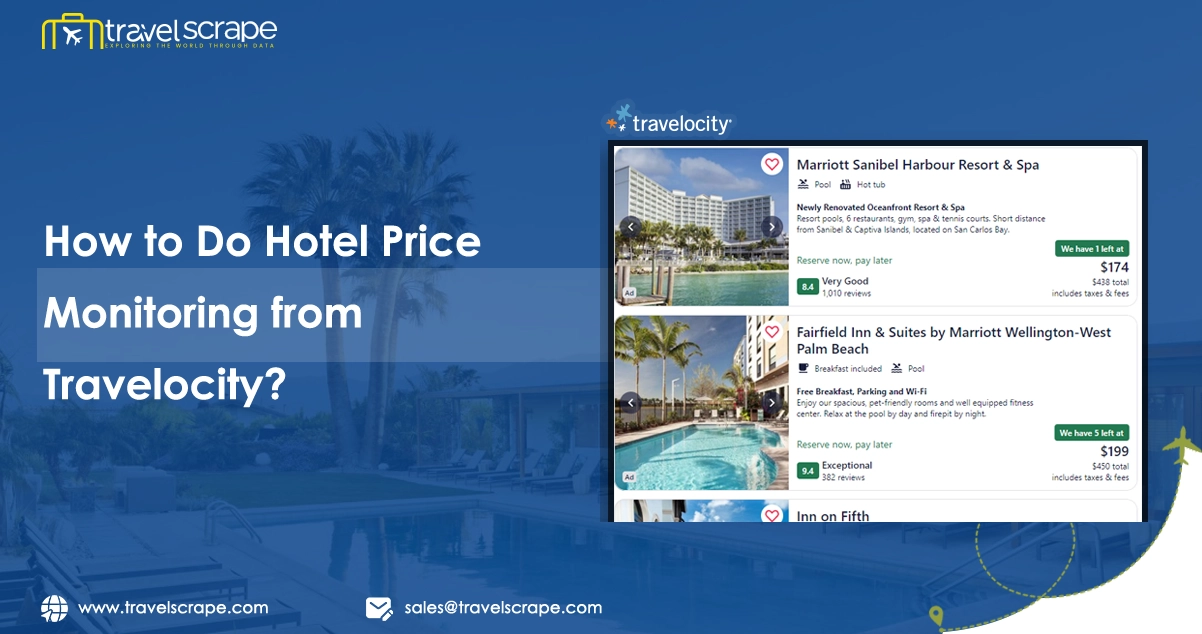
Introduction
In the dynamic world of travel and hospitality, staying competitive often means keeping a close eye on hotel prices. Travelocity, a major player in the online travel market, offers a wealth of data that can be invaluable for businesses looking to optimize their pricing strategies. Monitoring hotel prices daily from Travelocity can provide real-time insights into market trends, competitor pricing, and customer preferences. In this blog, we'll explore how to monitor hotel prices daily from Travelocity using various techniques, including web scraping, and discuss the benefits of this practice for your business.
Understanding Hotel Price Monitoring
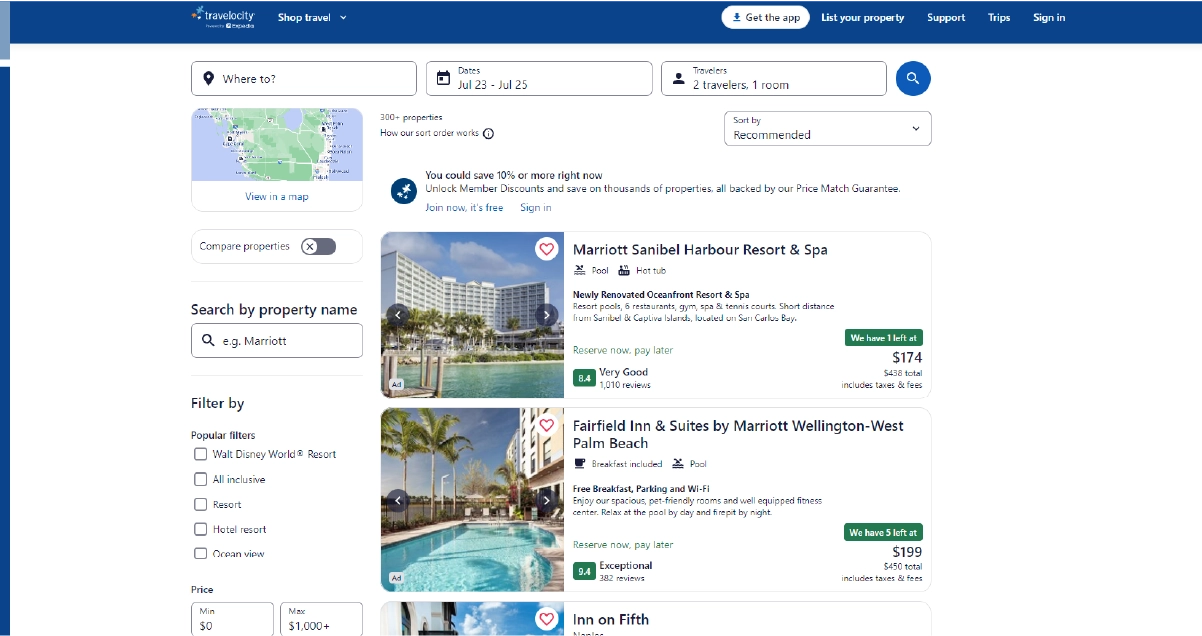
Travelocity hotel price data scraping services involves track and scrape hotel room pricing data over time to gain insights into pricing strategies, market trends, and competitive positioning. By keeping an eye on price fluctuations, businesses can adjust their pricing models to remain competitive and attract more customers. Travelocity, with its extensive database of hotel listings, is an excellent source for this data.
Benefits of Hotel Price Monitoring from Travelocity
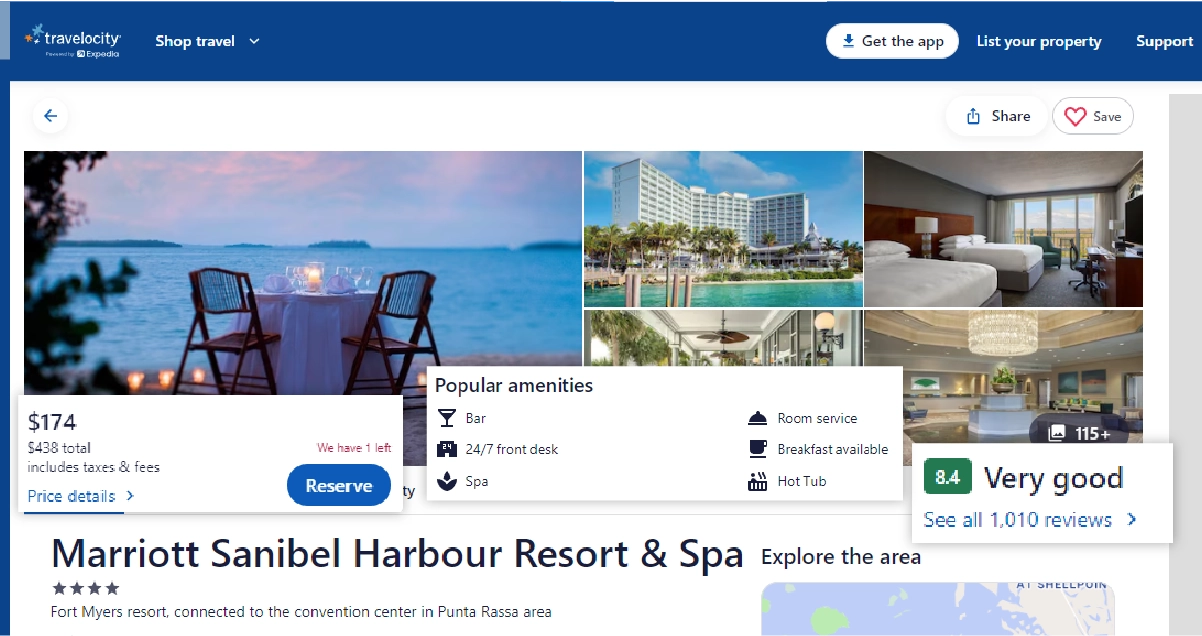
1. Competitive Pricing
One of the primary benefits of hotel price monitoring from Travelocity is the ability to stay competitive. By hotel price tracking of competitors, you can adjust your rates to ensure you are offering competitive pricing. This can help you attract more bookings and increase your revenue.
2. Market Insights
A Travelocity hotel price tracker provides valuable market insights. You can identify trends such as peak booking times, seasonal price changes, and popular destinations. These insights can inform your marketing strategies and help you optimize your offerings.
3. Improved Revenue Management
Effective revenue management requires real-time data. By monitoring hotel prices daily from Travelocity, you can make informed decisions about pricing, promotions, and inventory management. This helps maximize your revenue and occupancy rates.
4. Customer Insights
Understanding customer behavior is crucial for any business. By using hotels & travel price data scraping services, you can gain insights into what customers are willing to pay, which amenities are most valued, and how price changes impact bookings.
How to Monitor Hotel Prices Daily from Travelocity?
There are several methods to monitor hotel prices daily from Travelocity. These range from manual hotel price tracking to automated data scraping techniques. Here, we will focus on using web scraping, a powerful method for extracting large amounts of data efficiently.
1. Understanding Web Scraping
Travelocity hotel price data scraping services involves extracting data from websites using automated scripts. It allows you to gather large volumes of data quickly and efficiently. For monitoring hotel prices from Travelocity, web scraping can be used to extract pricing information, room availability, and other relevant data.
2. Setting Up Your Environment
To start with web scraping, you need to set up your development environment. This typically involves installing Python and relevant libraries such as BeautifulSoup, Scrapy, and requests.
pip install beautifulsoup4 scrapy requests3. Writing the Scraping Script
Here’s a basic example of a web scraping script using Python and BeautifulSoup to extract hotel prices from Travelocity:
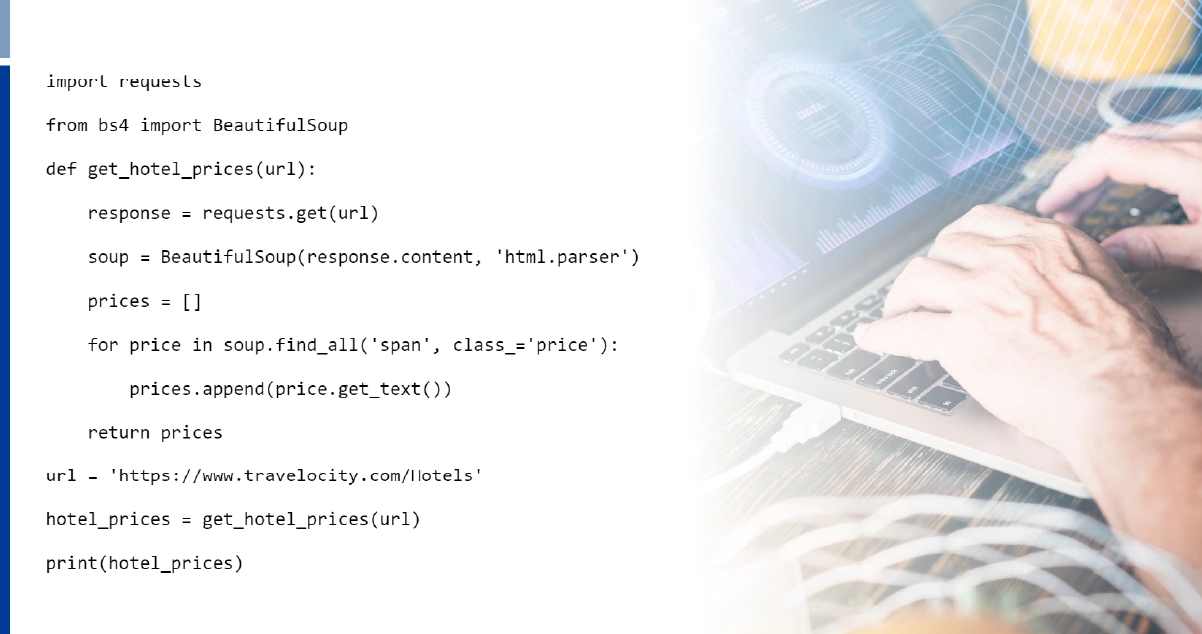
This script sends a request to the Travelocity website, parses the HTML content, and extracts prices. You can customize it further to extract additional details such as hotel names, room types, and availability.
4. Automating the Process
To monitor hotel prices daily, you can automate the script using a task scheduler like cron (for Linux) or Task Scheduler (for Windows). This ensures that your script runs at regular intervals, collecting fresh data every day.
5. Storing and Analyzing Data
Collected data should be stored in a database for easy access and analysis. Databases like MySQL, PostgreSQL, or MongoDB are commonly used for this purpose. Once stored, you can analyze the data using tools like pandas and NumPy in Python.
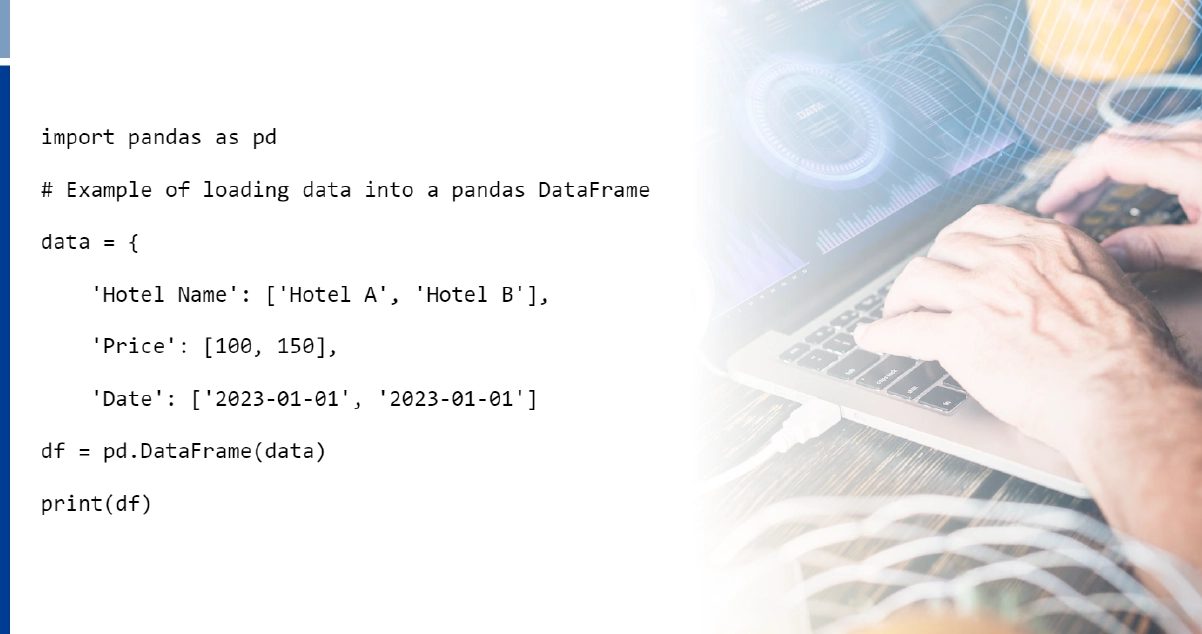
Challenges and Considerations
While Travelocity hotel price tracker is a powerful tool, there are several challenges and considerations to keep in mind:
1. Legal and Ethical Issues
Ensure that your web scraping activities comply with Travelocity’s terms of service and legal requirements. Unauthorized scraping can lead to legal consequences.
2. Technical Challenges
Websites often change their structure, which can break your scraping script. Regular maintenance and updates to your script are necessary to ensure it continues to function correctly.
3. Data Quality
Ensure that the data collected is accurate and clean. Implement error handling and validation checks in your script to maintain data quality.
Alternatives to Web Scraping
If web scraping is not suitable for your needs, there are alternatives:
1. API Integration
Some platforms offer APIs that provide structured data access. Check if Travelocity offers an API for hotel price data. APIs are typically more reliable and easier to integrate than web scraping.
2. Third-Party Services
Several third-party services specialize in data extraction and offer ready-made solutions for hotel price monitoring. These services can save time and resources, providing data in a convenient format.
Conclusion
Monitoring hotel prices daily from Travelocity can provide invaluable insights for your business. By using Travelocity hotel price data scraping services, you can automate data extraction, ensuring you have access to real-time, accurate data. This data can help you stay competitive, improve revenue management, and better understand your customers. Travel aggregators can significantly benefit from these insights, as they allow for comprehensive comparisons and better service offerings.
However, it’s essential to consider the legal and ethical implications of web scraping and ensure that your activities comply with relevant regulations. Additionally, regular maintenance of your scraping scripts is necessary to adapt to changes in the website structure. For travel aggregators and other businesses, ensuring compliance while you scrape mobile travel app data and web data is crucial to maintaining ethical standards.
Whether you choose to implement a web scraping solution yourself or leverage third-party services, the insights gained from hotel price monitoring can significantly enhance your business strategy. By integrating hotels & travel price data scraping services into your operations, you can transform your hotel pricing strategy and stay ahead in the competitive travel market.
Ready to optimize your hotel pricing strategy with daily price monitoring from Travelocity? Partner with Travel Scrape to harness the power of data scraping and gain a competitive edge today!